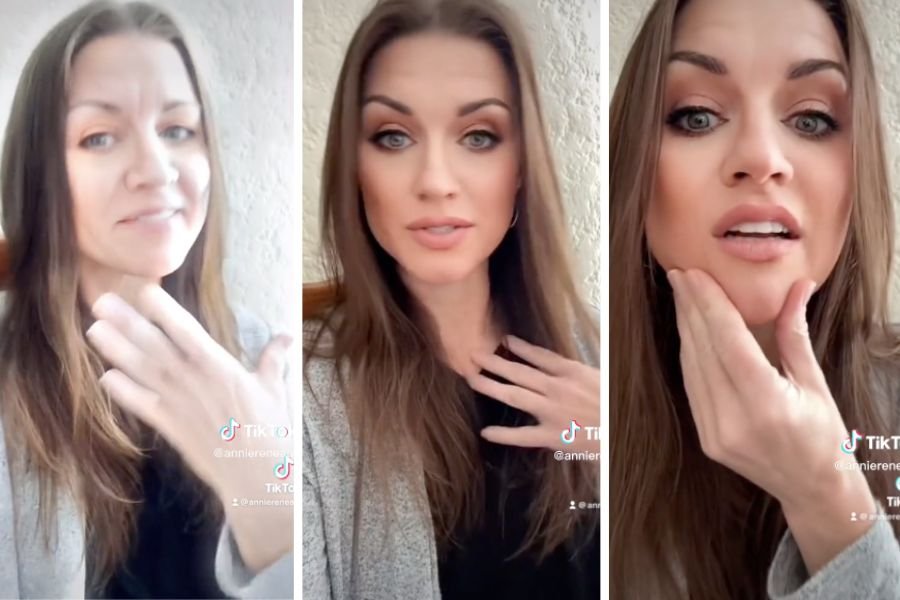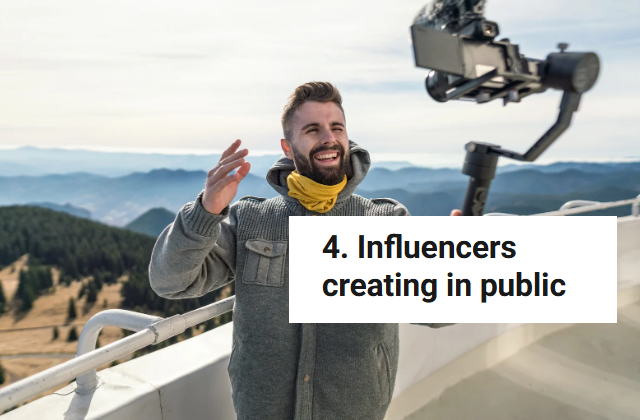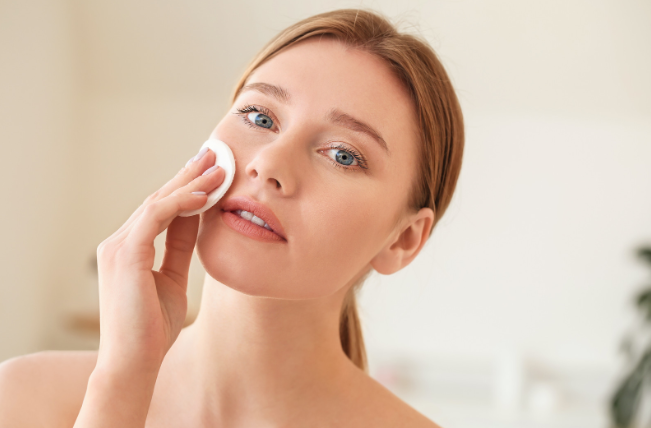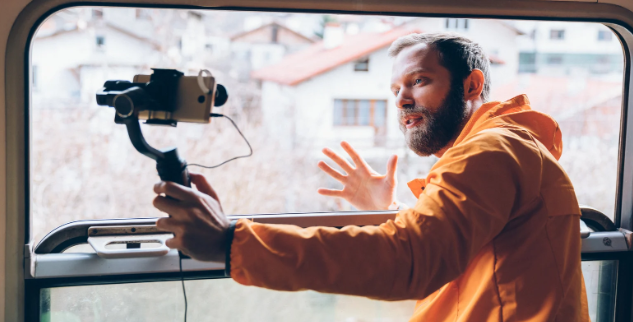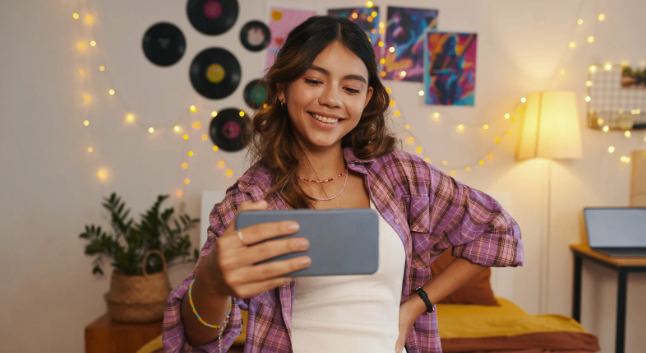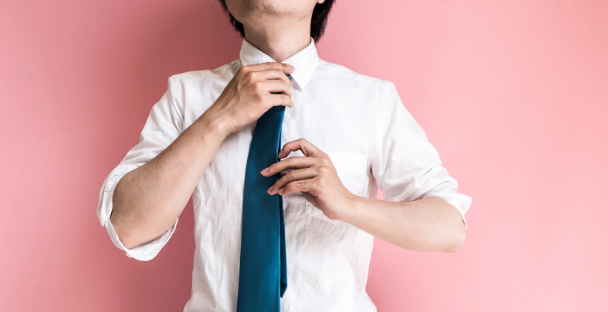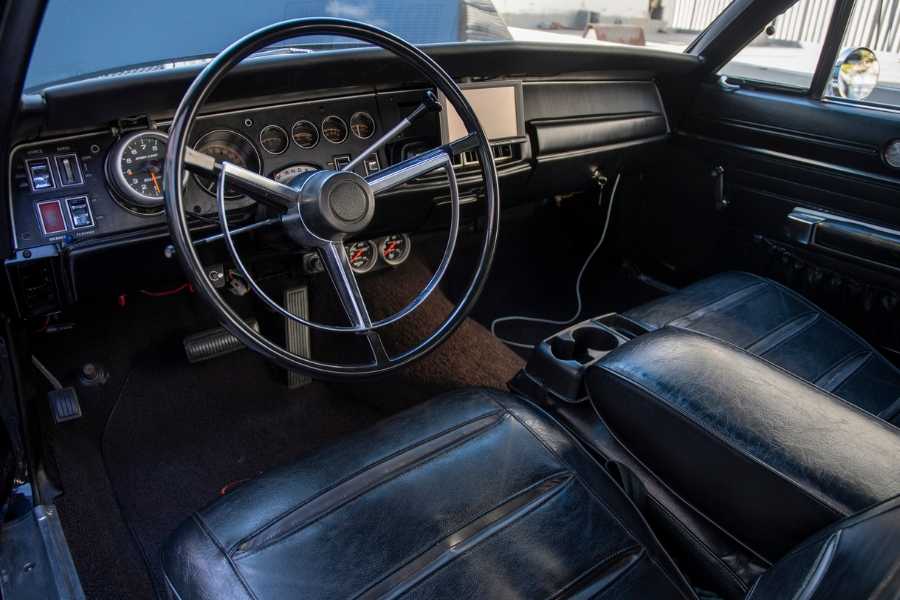First, allow me to introduce myself—and my “Bold Glamour” alter-ego—via TikTok:
Freaky, right?
Normally, I’m good with the way my face looks. (One of the gifts of your late 40s is fully embracing your face in all its glory.) But I was surprised to find that the longer I used that filter, the more…well, homely my real face started to feel. There’s just no way for my real face to compare to the model-like one in that video, because this filter isn’t just a faux makeup job. It basically gave me plastic surgery, botox and a Photoshop airbrush to boot, and as overdone as it is, looking in the mirror after making that video really did trigger some insecurities about my real face that I didn’t think I had.
If a beauty filter can make me start to feel “meh” about my looks, I can only imagine what it’s doing to the psyches of young women who don’t have decades of life experience and confidence-building behind them.
Visual artist Memo Akten shared a thread on Twitter illustrating how scary these unreal-yet-too-real filters are, with examples from women illustrating how they do a number on our brains.
“I don’t wanna be known as the TikTok filter guy, but ICYMI after attacking GenX w teenage filter, TikTok just dropped a new filter to take out Millennials & GenZ,” he wrote. “‘Beauty filters’ are not new, but the precision on this is beyond uncanny. This is psychological warfare & pure evil.”
Women are sharing how a hyper-real filter like this breeds and fuels insecurity, which is the last thing we need when we are already fighting body image and beauty standard battles on multiple fronts.
Video filters in general can be a lot of fun. My teens and I have a blast playing around with Snapchat filters that make everyone look like they’re crying or turn people into cartoon characters and all kinds of silly things. But this is not that. This is leaning fully into Kardashian-esque beauty culture and creating an illusion that impossible beauty standards might actually be possible. Seeing is believing, after all.
Consciously, we know it’s an illusion. It’s just a filter. It’s not real. But that doesn’t change how our minds process seeing our filtered faces, nor does it change the very real impact they have on our self-image.
“I definitely see a new theme to body dysmorphic concerns,” Dr. Josie Howard, a board-certified psychiatrist who specializes in psychodermatology told InStyle. “People begin to expect themselves to look like their filtered self and can become obsessed with achieving that in the real world, which leaves them depressed, anxious, lonely, and disappointed.”
Experts have been sounding the alarm about the link between augmented reality filters and body image issues. As Harvard Business Review reports, “Physical appearance is a key component of identity and as such it can have a substantial impact on psychological well-being. Studies have shown that virtually modifying appearance can provoke anxiety, body dysmorphia, and sometimes even motivate people to seek cosmetic surgery.”
But we don’t even have to tap professional researchers to tell us all this. Just ask any portrait photographer about the changes they’ve seen in their clientele since the advent of social media filters. Here’s one photographer describing how she sees beautiful women feeling “devasted” by how they look in photos because they want to look like what they see in their filtered social media posts.
Photo editing and filters have been around for a long time, but that doesn’t mean they haven’t gotten more ubiquitous and more damaging. A shift in lighting to get rid of unflattering shadows is a very different beast than a filter that changes your entire facial structure and texture to look like a magazine ad.
YESSS! I started noticing it when Snapchat filters hit years ago. The senior girls that I photographed went from LOVING their photos to hating them. I didn't understand the shift for a while. I stopped doing portraits when it became impossible to please them with their real face.— Pam D (@soirchick) February 28, 2023
I would argue that this too-real video filter, which allows you to see yourself in real-time with a model-perfect face, is far more problematic than already-problematic-enough photo filters. Having your face altered that way and having your own movements and your own voice attached to it…it messes with you, even when you know it’s not real. I experienced it myself in just a matter of minutes, and I consider myself fairly immune to such things.
For young women and girls who are just in the early stages of forming their self-image, it’s an extremely dangerous social experiment. Parents, please talk to your kids about the psychological impact beauty filters like these can have, and maybe encourage them to stick to ones that turn faces into horseheads or make flowers fly out of their mouths instead. Those who profit off of women’s insecurities aren’t going to altruistically change, so it’s up to all of us to make sure young people internalize that filters are phony and their faces are fine, just as they are.

